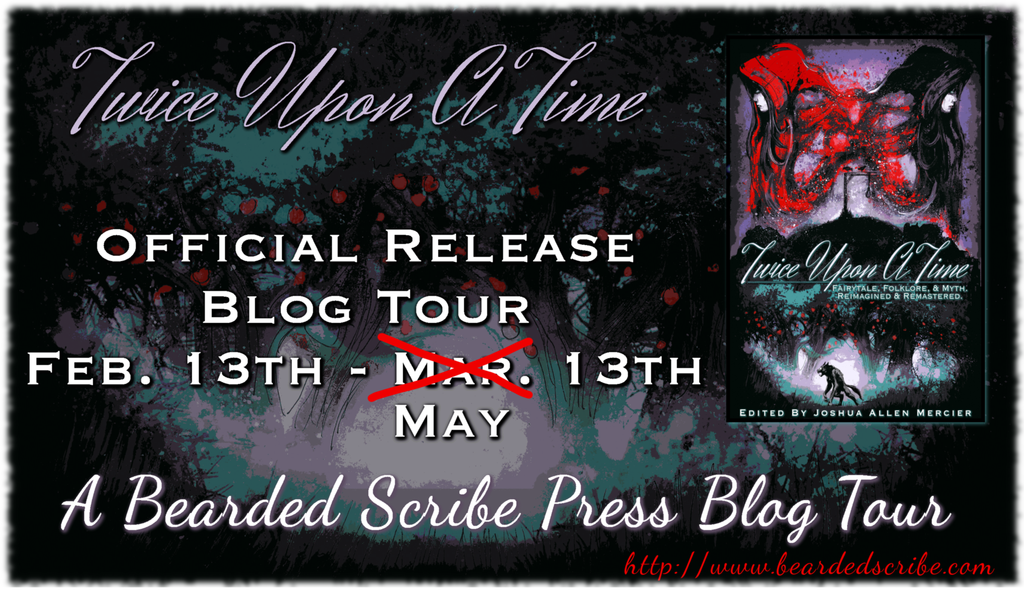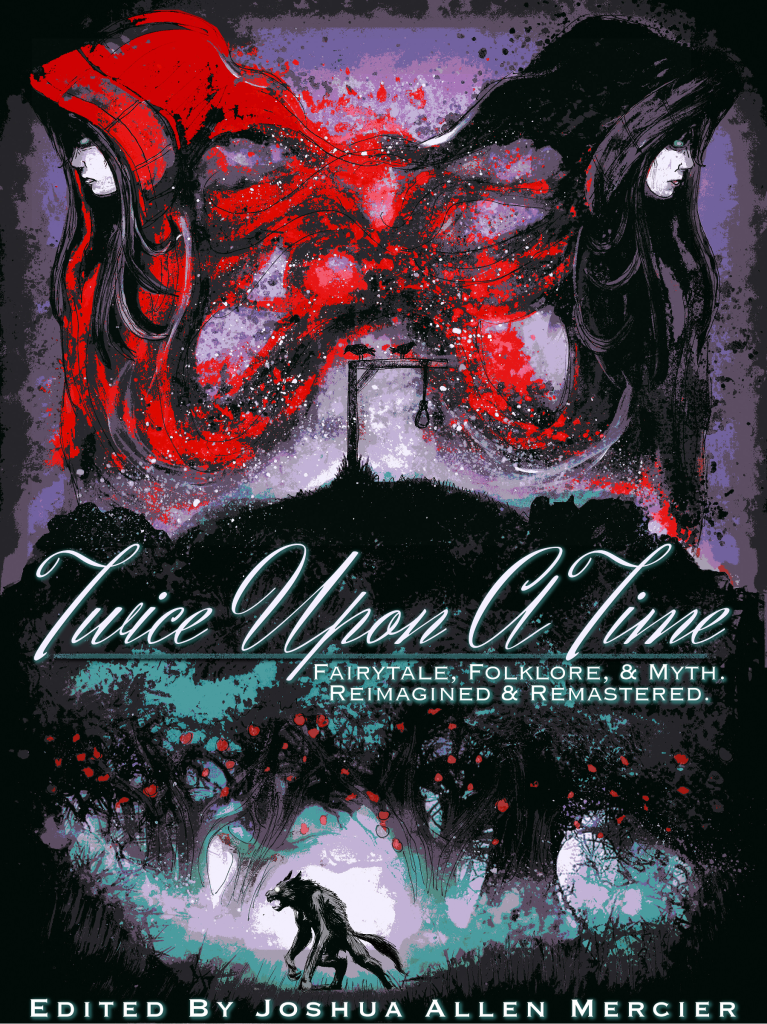The wonderful Angela Slatter has kindly answered some of our questions about
writing, life and who she would love to have a cuppa and cupcakes with from
history. One of the greats at writing horror and dark gritty fantasy, Angela is the
author of the Aurealis Award-winning The Girl with No Hands and Other Tales,
the World Fantasy Award finalist Sourdough and Other Stories, the
Aurealis finalist Midnight and Moonshine (with Lisa L. Hannett), and the
2015 Aurealis finalist of The Bitterwood Bible and Other Recountings, Black-Winged
Angels, and The Female Factory (also with Lisa L. Hannett) Aurealis 2015 Winner of the Best Collection with Lisa L. Hannett for The
Female Factory, Aurealis 2015 Winner of Best Fantasy Short Story
for “St Dymphna’s School for Poison Girls” and Aurealis 2015
Winner of the Best Horror Short Story for “Home and Hearth”
·
What was
it like winning an Aurealis Award or three?
It’s always nice to win awards, but (as I’m on the record as saying several
times before) it’s just the jam. You don’t write for awards, and whether you
win them or not doesn’t change who you are as a writer, doesn’t make you better
or worse as a writer. And the other thing is this: you’re often on shortlists
with friends. How can you feel super − happy if your friends lose and you win?
But, yes, it’s nice and the shiny pointy things certainly look purdy on the
shelves!
·
What
inspired you to start writing and what motivates you?
I always loved reading as a kid and after lights out I’d tell myself the
stories that had been read to me over and over before I slept. I’d think about
them and pull them apart − maybe I was actually a budding editor! − and
then tell them differently, especially if I hadn’t liked the ending. I’d always
scribbled, but didn’t make the decision to give writing a proper bash until I
was 37 − I didn’t want to hit 40 and feel I’d never tried to live my dream.
I’ve been working at it ten years now, and I still love it, despite the
poverty. There are all these stories and characters living inside my head − if
I don’t write about them, they get grumpy.
·
Can you
tell me a little bit about the main characters of your latest MS?
Ah, well, the novel Vigil, which is
doing the rounds now is set in Brisbane. It’s based on a short story
“Brisneyland by Night” that was first published in Sprawl (from
Twelfth Planet Press) and been reprinted a couple of times. The main character
is Verity Fassbinder who works for the Weyrd Council, keeping the folks of the
Weyrd community in Brisbane law abiding. Her father was a kinderfresser, a
child-eater and butcher to the traditionalists amongst the Weryd who thought it
their right to eat humans, so V has grown up with a fair few chips on her
shoulder. The novel takes place at a time when kids are disappearing from the
streets and someone is producing a wine made from the tears of children. It’s a
mix of fairy tale and urban fantasy and horror, and V has a bit of DNA from
John Connolly’s Charlie Parker and Clive Barker’s Harry D’Amour.
·
Do you
have a name for your computer?
Nope! It’s just “the desktop” and “the laptop”.
·
What type
of books do you like reading?
Well, speculative fiction, fairly obviously :-) − more dark fantasy and
horror than science fiction (I read a lot of science fiction as a teen and it’s
now much less interesting to me). I like reading crime − that’s my go-to
when I just need to relax because it’s not my genre so I don’t generally see
all the seams and plot holes I see when I’m reading spec-fic.
·
What was your favourite chapter (or part) to write and why from one
of the winning entries?
Oh, that too hard! I love the opening scene from “St Dymphna’s School for
Poison Girls” when Mercia sees the ghost of a man crucified against the alder
tree with mistletoe binding coz I think it’s a striking image, and I love the
scene when the girls are being taught how to use fans to assassinate someone
because of the challenge in writing something both frivolous and deadly! I love
the scene in “Home and Hearth” where the ghost child climbs into Caroline’s bed
and snuggles against her because it makes me shiver. And in The Female Factory
... I love the first transformation scene that Baron watches at the billabong
in “All the Other Revivals” because it’s so strange and rich; I love the last
scene in “Vox” where Kate waits for instructions because it makes you feel like
you’re holding your breath (it’s one of Lisa’s scenes and it’s perfect); I love
the escape scene in “Baggage” where Robin does something terribly ruthless and
you sense that both of her personalities have joined forces; and I love the
first scene in “The Female Factory” novella where the children go grave
robbing, because it’s got a wonderful mix of innocence and dread utterly
untouched by any sense of morality. All of those sound wrong when you read over
them! But it’s about successfully creating all those moods with words.

·
What are the most important attributes to remaining sane as a writer?
Don’t take yourself too serious; grow a thick skin; remember you’re not
always right about the shape of your story; have two or three people whose
opinions you trust; remember there’s more than one path to the end of a story
and you don’t need to tell it the way you first wrote it; network − and
that means creating mutually helpful relationships in the writing community,
not just trying to get whatever you can for yourself; keep in touch with the
tribe; don’t just talk about writing, do the writing.
·
If you
could have a cuppa with anyone from history, who would it be?
I’d like to sit Catherine the Great and Hatshepsut down for a coffee and
cupcakes.
·
Do you
have a writing routine that you need to do before you start to write?
I go for a walk around the park in the morning, which means I get some fresh
air and exercise before I sit down. But I’m very mindful of Jeff VanderMeer’s
advice: free yourself of writing fetishes. If you can only write with a certain
kind of pen, in a particular place, using a special font, facing west with a
teddy bear to your left and a Sheldon bobble-head to your right, then you’re
already making a whole list of excuses not to write. You need to be able to
scribble anywhere, anytime, using whatever mediums are at hand. It’s about
getting the words down, it’s about the habit of the actual writing, not about
the superstitious customs we use as gateposts.
·
How much
research goes into your writing?
It depends on the subject matter. If it’s a deeply historically based piece
− such as “The Female Factory” novella − then a lot. Lisa and I both went
through old records online about the female factories of Australia, who was in
them, what happened to orphan children at that time, where the closest Queen’s
Orphan School was, the duties of convict supervisors and overseers, the sorts
of buildings and facilities around the place at the time, the kind of foods,
the sort of work the female convicts did, the duties of each class of convict,
etc. Even though not every bit of research goes in, you do your best to ensure
that it underpins and flavours everything you write so that the story feels
authentic ... all stories are about ‘what if’, but you still need to make sure
the foundation is believable for the reader.
The other danger with research − apart from losing yourself in it in an
attempt to avoid the actual writing − is that you do so much research that you
just want everyone to know everything that you now know! And that’s not good
for a story ... it gets weighted down by so many historically accurate details
that you can’t see the story for the minutiae. So you need to be really careful
and have a constant check − in with yourself to ask “Is this detail relevant to
the story?” You can get away with some flab in a novel; a short story, not so
much.
·
What would
be your ideal century and why?
Honestly, if I were to choose any other than the present it would be based
purely on the clothing and how they look. Alas, due to all the research I’ve
done I know how filthy the streets of Paris were during the years of the Sun
King even though the dresses were gorgeous; how disgusting Victorian London was
although, again, the gowns were amazing − but you couldn’t breathe because of
the corsets or the fog or the stink of the sewage. So, I’ll say Now: as women,
we have more freedom and comfy clothes than ever before, even though our shoes
are often stupid.
·
How did
you become interested in horror?
I read Dracula
as a teen! I read Richard Laymon and Stephen King, Shaun Hutson, Clive Barker,
Dean Koontz. I read MR James and Joseph Sheridan Le Fanu. I read Barabara
Bayton and Marghanita Laski and
Mary Shelley. And I read so many, many fairy tales, which are the basic
building blocks of horror: forced to wear hot iron shoes and dance! Your father
wants to marry you! Eaten by bears when you commit a break and enter! Traded to
a witch by your mother because she love radishes!
·
Has the dog ever eaten your manuscript?
Nope. I’m very professional and respect my deadlines. And I am a compulsive
backer- upper of files.
·
What are
your tips for people entering into the Aurealis Award for the first time?
(a) Write good stories!
(b) Enter the stories in the appropriate category rather than trying a
ridiculously optimistic scattergun approach.
(c) Don’t be depressed if you don’t get shortlisted − and don’t be shitty to
people who are shortlisted.
(d) Remember always: awards are a crapshoot − you’ve got no control over
people’s reading tastes or who the competition is.
(e) Winning or losing, shortlisting or otherwise, doesn’t change who you are
as a writer and doesn’t magically change the quality of your work, so keep
perspective at all times. No one has the right to win an award.
Thank
you very much Angela for taking the time to answer these questions. If
anyone wants more information about Angela's books then please head over
to her website here.
We can also try to order in any of Angela's works for you all to read :D







